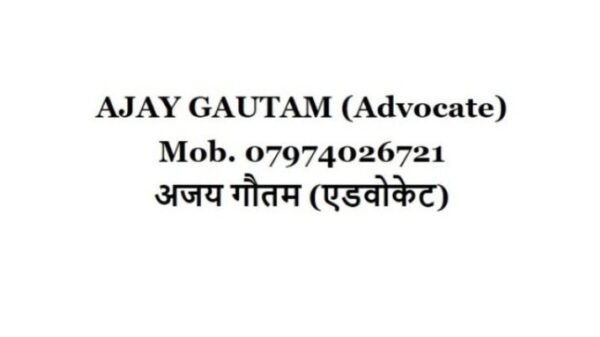Section 144 of the Bharatiya Nagarik Suraksha Sanhita (BNSS), 2023: Advocates & Lawyers

Section 144 of the Bharatiya Nagarik Suraksha Sanhita, 2023 (BNSS) provides for the maintenance of wives, children, and parents. This section ensures that individuals with sufficient means do not neglect or refuse to maintain their dependents who are unable to support themselves financially.
Who Can Claim Maintenance?
Wife: A wife (including a divorced wife who has not remarried) can claim maintenance if she is unable to maintain herself. The definition of “wife” includes women who have been divorced by, or have obtained a divorce from, their husband and have not remarried.
Children: Legitimate or illegitimate children, whether married or not, can claim maintenance if they are unable to maintain themselves. Adult children with physical or mental disabilities are also covered. Unmarried daughters can claim maintenance until marriage or until they are able to support themselves.
Parents: Both father and mother, biological or adoptive, can claim maintenance from their children if they are unable to maintain themselves, regardless of the children’s gender or marital status.
Eligibility and Conditions
The claimant must prove that they are unable to maintain themselves.
The person from whom maintenance is sought must have sufficient means and must have neglected or refused to provide support.
The court, usually a Judicial Magistrate of First Class, determines the maintenance amount, which can be revised if financial circumstances change.
Quantum and Nature of Maintenance
The court considers the financial capacity of the provider, the needs and standard of living of the claimant, and any other dependents the provider may have.
Maintenance can be awarded as a monthly allowance or a lump sum.
Provision for interim maintenance is included, ensuring immediate financial relief during the pendency of proceedings.
Secular and Gender-Neutral Application
Section 144 is a secular provision, applying irrespective of religion or personal law.
It is gender-neutral, allowing even a dependent husband to claim maintenance.
Purpose and Rationale
The primary aim of Section 144 is to prevent destitution and vagrancy among dependents, ensuring they are not left without basic necessities due to neglect or refusal by those responsible for their care. It provides a speedy, effective, and inexpensive remedy compared to civil court proceedings, reflecting a commitment to social justice and familial responsibility.
Historical Context
Section 144 of BNSS replaces Section 125 of the Criminal Procedure Code (CrPC), 1973, carrying forward its principles with updated procedural efficiency and inclusivity.
Notable Features
Maintenance rights extend to children born out of wedlock.
Parents can claim maintenance from any of their children, including married daughters.
The provision upholds the right to live with dignity for vulnerable family members.
Limitations
The provision does not extend maintenance rights to women in live-in relationships or those whose marriages are not legally recognized, potentially leaving them vulnerable.
Section 144 of the BNSS, 2023, is a progressive legal measure designed to ensure financial support for wives (including divorced wives), children (including those with disabilities or born out of wedlock), and parents, reinforcing the legal system’s commitment to social welfare and the dignity of dependents.
